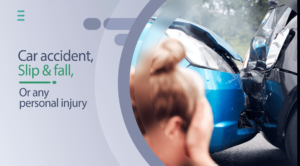When you’re involved in an accident, the first thing that comes to mind is probably how to pay for your medical expenses. But what happens when you don’t have health insurance? Who pays for your bills? What if it’s not just one accident but multiple accidents?
The Defendant Doesn’t Have to Pay Your Medical Bills On an Ongoing Basis
The defendant is not responsible for paying your medical bills on an ongoing basis. In fact, the law requires that they pay your medical bills only after you’ve recovered from your injuries and been discharged from the hospital. This means that if you sue them for damages or win in court, they will be held liable for paying those costs—but only after you’ve been treated by doctors.
Health Insurance Coverage
Health insurance is different from medical coverage in many ways:
● Health insurance covers only health costs—not all expenses related to your injuries or illnesses (such as lost wages).
● Health insurance does not pay for any pre-existing conditions.
Paying Medical Bills After a Car Accident In a “No Fault” State
When you have a car accident in a “no fault” state, you may be able to recover medical expenses from the at-fault driver’s insurance company. However, if your own insurance does not cover these costs or if it has limits on what it will pay for, you may have to pay them out of pocket.
There are also other steps that can help ensure that your medical expenses are paid by someone else:
● Be sure that both parties have their own primary and secondary coverage before an injury happens. Otherwise, they won’t be covered by either policy until after an injury occurs and no one knows who’s responsible for paying the bills afterwards!
● Make sure both drivers involved in any vehicle accidents carry full coverage policies which include Personal Injury Protection (PIP) coverage as well as uninsured motorist liability clause.
Paying Medical Bills After a Car Accident In a “Fault” State.
If you’re injured in a car accident, the defendant is responsible for paying your medical bills. However, if you are hurt in an accident and brought to the hospital by paramedics or transported by ambulance, then your insurance company will likely cover most of your expenses.
Paying Medical Bills After an Accident on Someone Else’s Property.
If you’ve been injured on someone else’s property, and your medical bills are covered by insurance, then it is likely that they will pay them. However, there are some exceptions to this rule:
● If the owner of the car or property has insurance coverage for injuries sustained from accidents on their property. In such cases, he or she may be able to claim those costs as part of his or her own medical expenses.
● If you are suing both parties involved in an accident (i.e., both drivers), but only want to receive compensation from one party for injuries sustained during an incident.
Paying Medical Bills After a Work-Related Accident
If you’re injured at work, your employer is required to pay for all medical bills. In the past, workers’ compensation policies were a one-size-fits all solution that covered everything related to an accident or injury. However, over time there has been an increased focus on managing risk within specific industries and occupations. As such, many states have now begun requiring employers to purchase additional coverage for their workers in certain circumstances.
Conclusion
We hope you’ve found this article helpful and informative. We know that accidents are scary and often painful, but the right legal advice can help make things a little less complicated. If you have any questions or concerns about paying medical bills after an accident, please contact your lawyer today!




